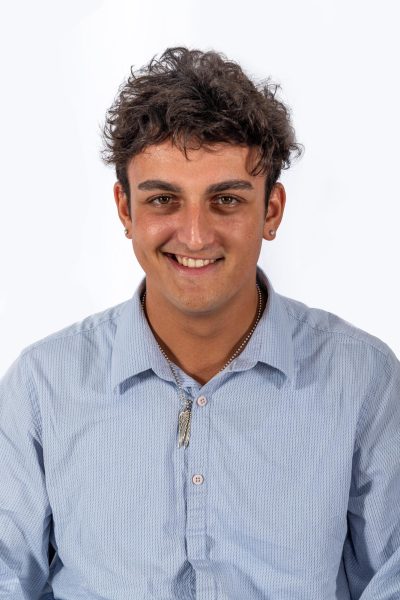Hillel at Ithaca College hosted a card-writing event April 24 for 100-year-old Holocaust survivor and educator Judith Altmann. Altmann was originally scheduled to speak via Zoom for Yom HaShoah, the Israeli Holocaust memorial day, but the event was changed due to Altmann being hospitalized for heart failure.
Altmann was born in Jasiňa, Czechoslovakia — current day Yasinya, Ukraine — in 1924. In 1939, the Nazis invaded her country and in 1944, she was arrested and sent to the Auschwitz concentration camp. She was subsequently sent to labor camps in Essen and Gelsenkirchen, before surviving a death march that ended in the Bergen-Belsen concentration camp. She remained there, sick with typhus, until the camp’s liberation by the British army in April 1945. In 1948, Altmann immigrated to the United States.
Altmann is a member of the Holocaust & Human Rights Education Center Speakers Bureau and is the vice president of the Holocaust Child Survivors of Connecticut, Inc. She often speaks about her experiences at grade schools and colleges. Julie Boden Adams, executive director of Hillel at IC, said Altmann is a sought-after speaker because of her age and how thorough her memories of her experiences are.
Adams said Altmann’s appearance and mannerisms resonated with her because she felt like she was looking at her own family.
“When I watch her on video, I see my grandma Greta,” Adams said. “[She was] from Austria, she was also a Holocaust survivor, she had the same hairdo [and] she had a similar accent.”
The event was somber and quiet, with around a dozen students, staff and faculty coming together to write get-well-soon cards for Altmann. A video of her telling her story was played. Due to her age, she was unable to travel to the event and would have attended via Zoom. Adams said this is one of the challenges she faces when finding Holocaust survivors to come speak.
“It is very difficult … because Holocaust survivors are reaching the end of their lives,” Adams said. “The fact that Judy [has] such a deep and profound story, I felt that it would resonate with people even if [it was] through a screen.”
Adams said Holocaust education will soon have to rely on second-generation survivors to continue educating people. She said her father and uncle, second-generation survivors, were of the One Thousand Children, a designation for unaccompanied children who fled Europe to the United States from 1934 to 1945. Adams said she had talked to her father about doing a second-generation talk next year.
“A second-generation talk would be the child of a survivor talking objectively about what they know about their parents’ experiences,” Adams said. “What they’ve heard, what they’ve learned and then what that second generation has seen and experienced in their own lives … but it is one step removed.”
















Melissa Gal • Apr 27, 2025 at 11:09 am
Where can community members send a card to Judith Altmann? Thank you